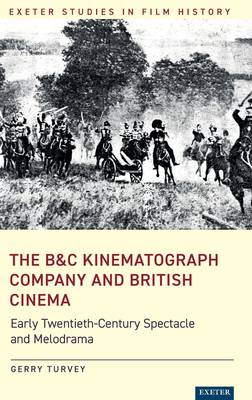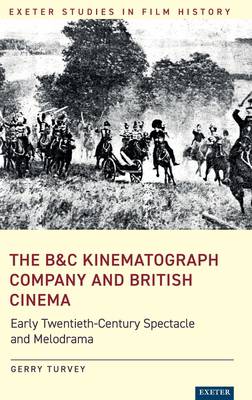
- Afhalen na 1 uur in een winkel met voorraad
- Gratis thuislevering in België vanaf € 30
- Ruim aanbod met 7 miljoen producten
- Afhalen na 1 uur in een winkel met voorraad
- Gratis thuislevering in België vanaf € 30
- Ruim aanbod met 7 miljoen producten
The B&C Kinematograph Company and British Cinema
Early Twentieth-Century Spectacle and Melodrama
Gerry TurveyOmschrijving
This book sheds new light on the under-researched period of early British cinema through an in-depth history of the British and Colonial Kinematograph Company-also known as 'B&C'-in the years 1908-1916, the period when it became one of Britain's leading film producers. It provides an account of its films and personalities, and explores its production methods, business practices and policy changes.
Gerry Turvey examines the range of short film genres B&C manufactured, including newsworthy topicals and comics, and series dramas, and how they often drew on the resources of urban Britain's existing popular culture-from cheap reading matter to East End melodramas. He discusses B&C's first open-air studio in East Finchley, its extensive use of location filming, and its large, state-of-the-art studio at Walthamstow. He also investigates how the films were photographed and 'staged', their developing formal properties, and how the choice of genres shifted radically over time in an attempt to seek new audiences.
DOI: https: //doi.org/10.47788/SGOE1157
Specificaties
Betrokkenen
- Auteur(s):
- Uitgeverij:
Inhoud
- Aantal bladzijden:
- 448
- Taal:
- Engels
- Reeks:
Eigenschappen
- Productcode (EAN):
- 9781905816644
- Verschijningsdatum:
- 23/08/2021
- Uitvoering:
- Hardcover
- Formaat:
- Genaaid
- Afmetingen:
- 156 mm x 234 mm
- Gewicht:
- 866 g

Alleen bij Standaard Boekhandel
Beoordelingen
We publiceren alleen reviews die voldoen aan de voorwaarden voor reviews. Bekijk onze voorwaarden voor reviews.







